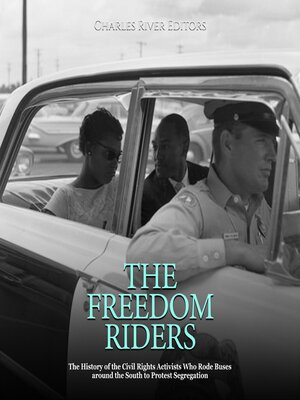The Freedom Riders
audiobook (Unabridged) ∣ The History of the Civil Rights Activists Who Rode Buses around the South to Protest Segregation
By Charles River Editors

Sign up to save your library
With an OverDrive account, you can save your favorite libraries for at-a-glance information about availability. Find out more about OverDrive accounts.
Find this title in Libby, the library reading app by OverDrive.



Search for a digital library with this title
Title found at these libraries:
| Library Name | Distance |
|---|---|
| Loading... |
After a 1960 Supreme Court decision in Boynton v. Virginia, bus segregation was made illegal on new grounds: it violated the interstate commerce clause of the Constitution, by regulating the movement of people across state lines. With this victory in hand, the Freedom Rides of 1961 began. Organized primarily by a new group – the Congress on Racial Equality (CORE) – the Freedom Rides followed the same guidance that inspired the Montgomery Boycott and the Greensboro Sit-Ins – non-violent direct action. The purpose of the Freedom Rides was the test the Supreme Court's decision by riding from Virginia to Louisiana on integrated busses. This was notably the first major Civil Rights event that included a large segment of white participants.
Mobs in places like Birmingham and Montgomery firebombed buses and brutally beat the Freedom Riders, sending dozens to the hospital. Mob violence, orchestrated by the KKK and their segregationist allies, erupted endlessly throughout the summer. White activists, who were viewed by the Ku Klux Klan as betraying their race, took the worst beatings of all.
Both black and white Northerners had participated in the Freedom Rides, and civil rights activists sought other ways to harness their energy and activism in 1963. After the Freedom Rides, civil rights leaders initiated voter registration drives that could help register black voters and build community organizations that could help make their votes count. The momentum generated by the Freedom Rides and the following activism would lead to the famous March on Washington and eventually the passage of a historic civil rights bill in 1964.







